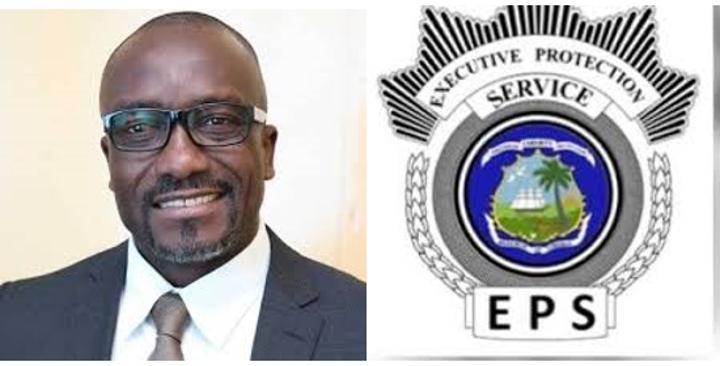Africa-Press – Liberia. The audit report identified multiple issues of significant materiality that affected the operations of the Executive Protection Service for the periods under audit.
The General Auditing Commission (GAC) has conducted and submitted to the National Legislature a compliance audit of the Executive Protection Service (EPS) for the Period July 1, 2018 to December 31, 2023. The audit report identified multiple issues of significant materiality that affected the operations of the Executive Protection Service for the periods under audit.
According to the report, the EPS management made payments for goods and services amounting to US$24,749,002.00 and L$621,949,854.95 without evidence of adequate supporting documents such as; payment vouchers, copy of checks, cash invoices, delivery notes and other relevant documents to authenticate the transactions. Furthermore, these payments were made in the names of employees rather than the vendors, service providers, direct beneficiaries or legally authorized representatives.
The payments included Special Operation Services and Intelligence Services expenditures amounting to US$15,709,952.00, expended without evidence of field activities reports as required by Section 2(1-6) of the National Security Reform and Intelligence Act of 2011 and Regulation P.9 (2) of the PFM Act of 2009 as Amended and Restated 2019 and Regulations B.28 of the PFM Act of 2009 as Amended and Restated 2019. The GAC recommended that management should fully account for expenditures made without adequate supporting documents.
Further, the report stated that the EPS management received several transfers totaling US$3,800,000.00 and L$172,785,500.00 from the Ministry of Finance and Development Planning (MFDP) through the Central Bank of Liberia (CBL) without adequate supporting documentation to explain the purposes for the transfers.
The EPS management expended an excess of US$12,177,865.76 between the approved budget and the fiscal outturn reports for FY 2018/2019 to FY2023 without evidence of an approved re-casted budget contrary to Regulation E.13 of the PFM Act of 2009 as amended and restated 2019 states: “(1) If additional funds are required because of increased activity costs that could not be foreseen when the annual estimates were presented, application for supplementary estimate shall be made to the Minister through the Line Minister, Sector Minister, or appropriate authority. (2) The accompanying memorandum shall explain how the extra costs became necessary.”
During the period under review, the EPS was headed by Trokon Roberts under the Coalition for Democratic Change Government.
The GAC recommended that management should account for the expenditure in excess of the approved budget limits without evidence of supplementary and /or recast budget and subsequent approval by the National Legislature.
No account for deducted salaries
The report further stated that management did not remit into the Government of Liberia consolidated account the total amounts of US$126,860 deducted from the salaries of EPS Agents that were suspended or absent from duties without approved leave. The GAC has recommended that the EPS Management should account for salaries deducted from suspended Agents amounting to US$126,860.00, which were not remitted into the consolidated account as required.
The GAC report noted the following irregularities were associated with the EPS Employees Development Funds: The bank statement showed that Mr. James E. G. Helb, Chairman of the Employees Development Funds and an “A” signatory to the account withdrew more than US$188,630 from the funds’ bank account using the mobile transfer Apps U- Direct and LEO Apps, for personal use.
Mr. James E. G. Helb also withdrew the amount of US$50,000 to purchase land without authorization from the Board for resale to the employees, non-compliant with approved policy.
Additionally, the GAC observed that Management maintained the names of 11 former officers that were either dead, dismissed or resigned on the payroll beyond the statutory period. The total salary paid in the names of the separated officers for the periods under audit was US$14,925 which the report states should be accounted for by management.
The GAC further observed that 20 individuals were interviewed but did not pass the interview for employment according to the interview panel records. The report found that three submitted fake high school credentials, three performed very poorly in the interview, six did not take the aptitude test, and six claimed they graduated from high school but could not prove it. However, a review of the personnel listing and payroll by the GAC indicated that some of the disqualified applicants were hired by EPS despite their disqualification by the interview panel.
The audit report also uncovered that 449 staff recruited during the audit period exceeded their two years probationary period without undergoing the Basic Police and VIP training as required by the Standard Operating Procedures. Section 1.7 of the Executive Protection Service Standard Operational Procedure (SOP) revised handbook of May 2019 states that “Within 2 years’ probationary period, the EPS will provide basic police and VIP Protection training for the new employees. During the period of training, all recruits/trainees are expected to perform to the best of their ability. In the event where a recruit/trainee performs below standards during the training period, he/she shall immediately be dropped from the class and lose his/her employment status.”
In conclusion, the report stated that based on the audit work performed, and because of the significance of the matters noted in the Basis for Adverse Conclusion, the financial transactions and operations of the Executive Protection Service are not in compliance with stated laws and regulations for the fiscal years July 1, 2018 to December 31, 2023.
For More News And Analysis About Liberia Follow Africa-Press






